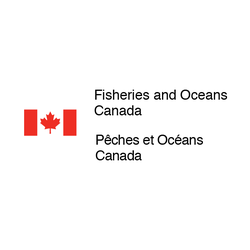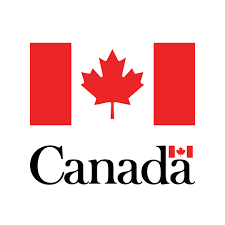
Patent
At a glance
- No Condition
- Open Date : July 15, 2024
- Professional, scientific and technical services
- Canada
- Financial cooperative
- Non-profit
- Public or Parapublic institution
- For-profit business
- Sole proprietorship
- Social economy enterprise
- Non-financial cooperative
- All revenue ranges
- All organization sizes
- All groups
- Research
- Business Associations
- Professional Associations
- Not Elsewhere Classified
- Business owners / entrepreneurs
- Academia / students
- All structures
- All dimensions
Overview
Learn about, search for or apply for registration of a patent, which gives you exclusive rights over products and processes that you invent.
Activities funded
The grant aims to provide resources for patent-related activities which are essential for securing intellectual property and innovation rights. Eligible projects focus on maintaining, protecting, and managing patents.
- Filing a patent application in Canada or abroad.
- Requesting examination of patent applications in Canada, including fast track options.
- Maintaining existing patents by paying required fees.
- Managing prior art to assess questions of patentability.
- Transferring ownership of patents.
- Engaging in patent industry training activities.
- Utilizing patent databases for research and information.
Eligibility
The eligibility criteria for obtaining a patent grant typically include the following: 1. Novelty: The invention must be new and not disclosed to the public before the patent application is filed. 2. Inventive step: The invention must involve an inventive step that is not obvious to someone skilled in the relevant field. 3. Industrial applicability: The invention must have a practical application in industry. 4. Patentable subject matter: The invention must fall within the categories of patentable subject matter, such as processes, products, or compositions of matter. 5. Ownership: The applicant must be the legal owner of the invention or have the right to apply for a patent. These are general eligibility criteria and specific requirements may vary depending on the jurisdiction. It is recommended to consult with the relevant intellectual property office or a patent agent for detailed information and guidance on the patent application process.
Who is eligible?
The context given does not provide specific information about who can apply for the grant related to patents and the Canadian Intellectual Property Office. Without further details, it is not possible to determine the eligibility criteria or the types of applicants who may apply. Typically, patent-related grants or funding opportunities would be targeted towards individuals or organizations involved in innovation, research and development, or commercialization of new technologies or inventions. However, specific eligibility requirements would need to be confirmed through detailed grant documentation or announcements from the Canadian Intellectual Property Office or related governmental bodies.Eligible expenses
There are eligible expenses for this grant, which include:
- Patent application and examination fees
- Maintenance fees for patents
- Costs associated with filing prior art
- Expenses for transferring ownership of a patent
- Costs for ordering patent documents
Selection criteria
There are evaluation and selection criteria for this grant:
- Evaluation based on patent application completeness and compliance with patent laws.
- Selection criteria include innovation, novelty, and potential commercial viability.
How to apply
Identify Your Invention
- Determine the uniqueness and patentability of your invention.
- Search the patent database to ensure the invention hasn’t been patented before.
Prepare Patent Application
- Draft the patent application including detailed description, claims, and drawings of the invention.
- Consider hiring a licensed patent agent for assistance.
File Patent Application
- Submit the completed application to the Canadian Intellectual Property Office.
- Include necessary forms and payment for application fees as listed by the CIPO.
Examination Request
- After filing, request an examination of your patent application.
- Consider fast-tracking the examination if needed.
Respond to Office Actions
- Answer any queries or objections raised by the patent examiner.
- Amend the application as necessary based on feedback.
Receive Patent Grant
- If approved, receive notification of the patent grant.
- Pay maintenance fees to keep the patent active.
Additional information
Here are additional relevant details for this grant:
- The patent process involves various fees including filing, examination, and maintenance fees.
- Volunteer opportunities are available for industry training visits for patent examiners to learn more about specific fields.
- A roadmap is available to help guide you through obtaining a Canadian patent grant.
- The services and information include the ability to transfer ownership of a patent and to appeal through the Patent Appeal Board if needed.
- Resources such as patent e-learning modules and international resources are available to educate on patent processes and infringement.
- You can maintain patent protection by paying maintenance fees.
- There's a service for ordering patent documents, including certified copies of patent applications.
- There is a DAS request form available for depositing a patent priority document to the WIPO Digital Access Service.
Frequently Asked Questions about the Patent Program
What is the Patent?
How much funding can be received?
What expenses are eligible under Patent?
What is the deadline to apply?
Is the Patent a grant, loan, or tax credit?
Who are the financial supporters of the Patent?
Who is eligible for the Patent program?
Who can I contact for more information about the Patent?
Where is the Patent available?
More programs like this

Industrial Research Assistance Program (IRAP) – AI Assist
National Research Council Canada (NRC)
Industrial Research Assistance Program (IRAP) — Youth Employment Program (YEP)
National Research Council Canada (NRC)
Mitacs Accelerate
Mitacs
ISED — Artificial intelligence (AI)
Innovation, Science and Economic Development Canada (ISED)
Global Innovation Clusters
Innovation Canada
IP for Business
Canadian Intellectual Property Office (CIPO)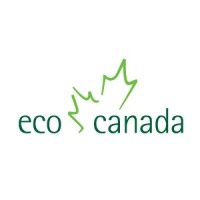
ECO Canada — Student Work Placement Program
ECO Canada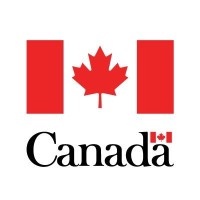
Enhanced Road Safety Transfer Payment Program (ERSTPP)
Transport Canada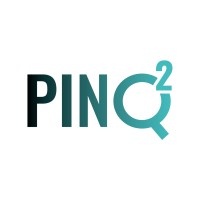
Digital and Quantum Innovation Platform — PINQ²
Plateforme d'Innovation Numérique et Quantique